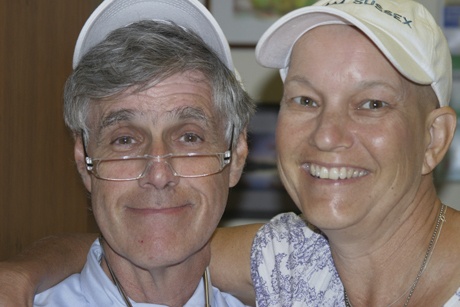The Swedish SummeRun 2009 was a big success with many Islanders running and walking to show their support and raise funds for the Marsha Rivkin Center for Ovarian Cancer Research at Swedish Hospital. Team Sussex had close to 100 participants and raised in excess of $13,000. Sussex, an avid athlete and constant optimist, has been courageously battling stage 4 ovarian cancer since May 2007. To read Sussex’s blog, go to www.kattale.blogspot.com.
The event drew over 3,500 participants and raised over $535,000 with funds still pouring in. The cost of the entire event was underwritten by Swedish Medical Center, and all monies raised go directly to the Marsha Rivkin Center to help in their mission to save lives and reduce suffering through improved treatment, early detection, and prevention of ovarian cancer. Funds raised through Swedish SummeRun will fund pilot studies, education efforts and screen women as part of scientific research studies.
What You Should Know About Ovarian Cancer
In 2008, the American Cancer Society estimates that 21,650 women will be diagnosed with ovarian cancer. Ovarian cancer has the highest mortality rate of all gynecologic cancers, and an estimated 15,520 women will die this year from this disease.
Unfortunately, most women with the disease are diagnosed in stage 3 or 4, when the survival rate is severely reduced. However, when ovarian cancer is detected early, there is a five-year survival rate of more than 90 percent.
Risk Factors
A woman’s risk of developing ovarian cancer increases: as women grow older; when there is a history of breast or ovarian cancer in the family or use of fertility drugs.
Protective Factors
There are a number of factors that may help protect women against ovarian cancer, including: Number of pregnancies (protective factor increases with each pregnancy); Length of breast feeding (protective factor increases with increased length of breast feeding; Use of oral contraceptives.
Hysterectomy (surgical removal of uterus) or Oophorectomy (surgical removal of ovaries) and the use of aspirin.
Signs & Symptoms
Include bloating, pelvic or abdominal pain.
Difficulty eating or feeling full quickly
Urinary symptoms (urgency or frequency)
Several other symptoms have been commonly reported by women with ovarian cancer including fatigue, indigestion, back pain, pain with intercourse, constipation and menstrual irregularities.
These symptoms may be caused by ovarian cancer or by other, less serious conditions. It is important to check with a doctor, preferably a gynecologist, about these symptoms if they are new and persist for 2-3 weeks, especially if you experience several at one time. For a referral to a gynecologic oncologist in your area, call the Gynecologic Cancer Foundation at 1-800-444-4441.
Go to www.swedish.org for more information.


